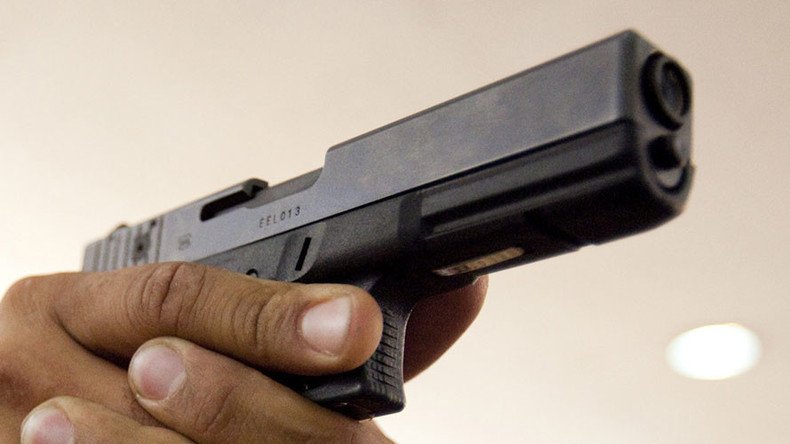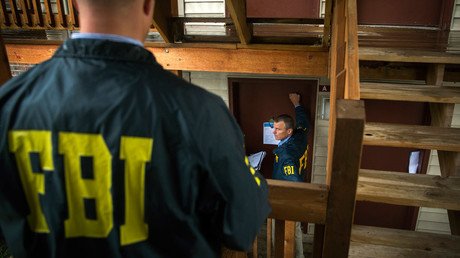Former Army National Guardsman arrested for trying to support Islamic State

A former member of the Army National Guard has been arrested and charged in federal court with offering material support to jihadist group Islamic State.
Mohamad Bailor Jalloh, a US citizen born in Sierra Leone, was arrested Sunday, according to court filings in the Eastern District of Virginia cited by the Washington Post. He is due to appear in court on Tuesday.
The government claimed that Jalloh gave $500 to an undercover FBI agent that Jalloh believed was operating with Islamic State (IS, formerly known as ISIS/ISIL). Federal law enforcement was alerted to Jalloh's plans by a confidential source who was working with a now-dead overseas co-conspirator, court documents said.
Jalloh, of Sterling, Virginia, was inspired to quit the National Guard upon listening to lectures by Yemeni-American Imam Anwar Al-Awlaki, who was killed in 2011 via a US drone strike for what the government said was his role in recruiting for the radical Islamist group Al-Qaeda.
Heeding Awlaki's directive for all Muslims to resist US military operations in the likes of Iraq and Afghanistan, Jalloh expressed interest in conducting an attack akin to Major Nidal Hasan's 2009 shooting spree at Fort Hood in Texas, which left 13 people dead, the court documents said. Hasan has said Awlaki was an inspiration for his own attack.
“You have to pick a action and take it cuz time is not on your side,” Jalloh wrote to a confidant, according to the court affidavit.
He also suggested that a person who organized contests that featured illustrations of the prophet Muhammad would be a worthy target for attack, according to court filings.
In February, Jalloh purchased a Glock handgun. He unsuccessfully attempted to buy an assault weapon in North Carolina last month, court documents indicated.
On July 2, while he was being surveilled by the FBI, he attempted to buy a Bushmaster AR-15, but he did not have the proper paperwork. He returned that same day and bought another assault weapon, but it had been disabled prior to his purchase.
Feds framed my client, #ISIS suspect’s lawyer says https://t.co/98HtZ2HRNRpic.twitter.com/iv5PrZzUWa
— RT America (@RT_America) January 20, 2016
While details of Jalloh's case are forthcoming, federal law enforcement has received criticism for manufacturing terror plots in recent years, often involving young Muslim men who would not have the means to procure materials for the plots they have been accused of planning, amounting to entrapment.
In 2014, the Muslim advocacy group SALAM issued a study that found that nearly 95 percent of terror arrests since the attacks of September 11, 2001, were the result of the FBI foiling its own entrapment plots.
Last month, a report in The New York Times detailed how the FBI has dramatically increased its use of undercover agents and informants in terror cases. About two out of every three prosecutions related to suspects believed to be supporting Islamic State involved undercover FBI figures, according to the Times.















